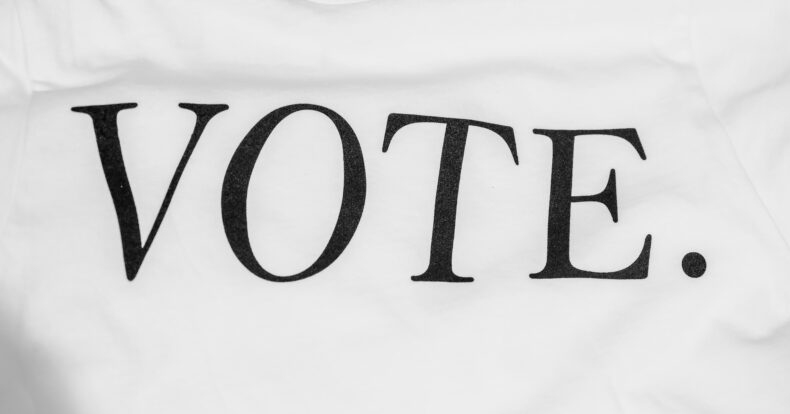Electoral Process in Costa Rica

The electoral process for voting varies in each nation depending on the State creation, since there are countries that do not have the option of exercising the right to vote. This issue stems precisely from how power has been consolidated in a given territory, known as the form of government of a State.
The struggle for suffrage varies from country to country, and only 72 years ago were Costa Rican women allowed to be considered voting citizens (1949), so that they could have the same right as men. Similarly, in 1971, a reform proclaimed in the Article 90 of the Constitution, that at the age 18 any person enrolled in the civil registry would be able to vote during the elections.
Costa Rica is a unitary, democratic, free and independent Republic (according to Article 1 of the Political Constitution). Therefore, the consolidation of a popularly elected government is established in numerous other articles; in this way, respect for the sovereignty of the nation is intended. How? This is consolidated through a presidential system as a form of government. Furthermore, the election of a presidential candidate isn’t the only vote option citizens have. The members of the Legislative Assembly are also chosen during the election process (as Costa Rica’s form of State is a three power one).
| “Costa Rica is a unitary, democratic, free and independent Republic (according to article 1 of the Political Constitution). Therefore, the consolidation of a popularly elected government is established in numerous other articles; in this way, respect for the sovereignty of the nation is intended.” |
What Elements Influence the Electoral Process in Costa Rica?
The Nation has an administrative entity called the Supreme Electoral Court (Tribunal Supremo de Elecciones, TSE), which originated as a result of the civil war that occurred in 1948, and it is established in Article 9 of the Constitution. This body functions independently to the three powers and its mission is to ensure suffrage in the country.
Therefore, the TSE has been in charge of developing the process of the presidential elections, of the legislators, and others that are included within the right to vote and the so-called electoral process. This body developed a regulation according to the constitutional principles for the processes of running for presidency, launching campaigns, and other processes related to suffrage.
Candidates for the presidency must meet the requirements of being Costa Rican by birth, a practicing citizen, and over 30 years of age. People who apply for legislative members must be over 21 years of age, be practicing citizens, and be Costa Ricans by birth, or have completed 10 years of naturalization after having obtained the nationality.
How Does the Electoral Process Work?
All persons with the quality of citizen, over 18 years of age, and registered on an electoral roll can exercise the secret, free and direct vote in their respective voting center on the established day of the elections; it is usually the first Sunday of February. There are the following options: vote in favor, vote against, null vote (for example, vote for both), blank vote (the blank paper is deposited), and abstention from voting; all these forms make up the well-known ‘right to vote’.
Depending on the number of candidates and their votes, a new president is declared on the same day by the TSE. Otherwise, there is a second electoral round (known as balotaje). It should be noted that candidates for members of the Legislative Assembly can only be elected in the first round.
After the second round, the types of votes are counted and the TSE declares the popular election of the candidate with the most votes (but it must exceed 40%). Next, a date is set for the transfer of powers and, in addition, the change of the members of the Legislative Assembly. In this way, a new government cycle begins for a period of 4 years.
| SUMMARY . The electoral process varies for each country according to the form of government and state consolidation that it has . Just 72 years ago, women in Costa Rica were able to exercise their right to vote .The Political Constitution declares Costa Rica a sovereign, free, independent and democratic nation, with popularly elected governments .There is a Supreme Electoral Court, which is in charge of overseeing the electoral procedure, establishing the guidelines and procedure, limits and guarantees of the process .You must be over 18 years old, registered on the electoral register, a practicing citizen to be able to vote, in all its forms permitted by law . There is the possibility of a second round to elect the President of the Republic. |
REFERENCES
Electoral Code. (2009). Law Nº8765. Retrieved from: https://www.tse.go.cr/pdf/normativa/codigoelectoral.pdf
Espinoza, V. (February 23, 2018). Requirements to choose and be elected deputy. [www.elmundo.cr]. Retrieved from: https://www.elmundo.cr/opinion/requisitos-optar-elegido-diputado/
Herrera, L. Villalobos, E. (2006). Suffrage and democratic principle: considerations on its existence and linkage. [Electoral Law Magazine]. Retrieved from: https://www.tse.go.cr/revista/art/1/herrerayvillalobos.pdf
Supreme Electoral Court .(2017). Costa Rican Electoral Process. Institute for Training and Studies in Democracy. Retrieved from: https://www.tse.go.cr/pdf/ifed/procesos_electorales.pdf
| Sofía Poveda Garro Law Student – University of Costa Rica sofiapovedagarro@gmail.com |
Navigate articles





